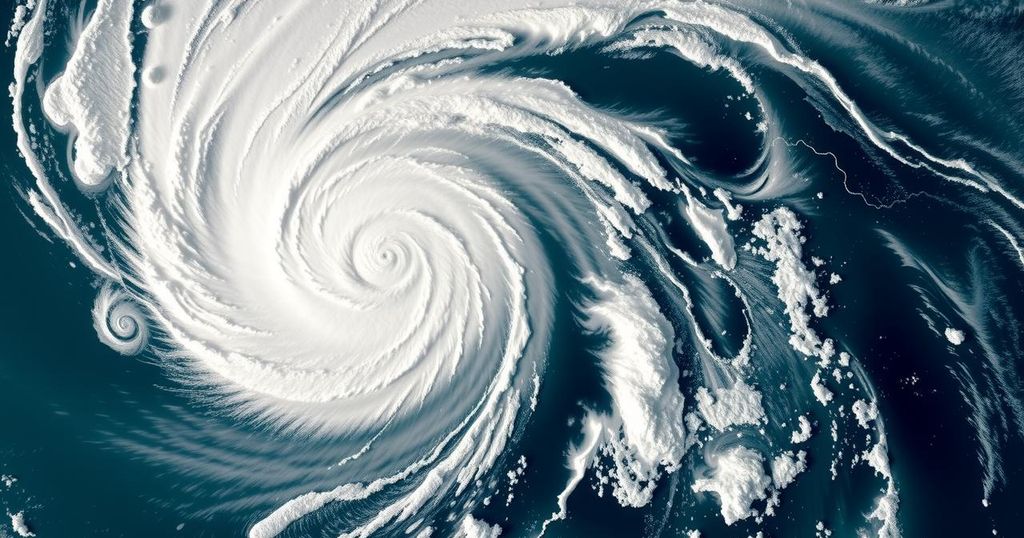Cyclone Chido Devastates Mayotte as it Approaches Eastern Africa
Tropical Cyclone Chido has caused severe damage in Mayotte, with winds exceeding 220 km/h. Prefect Francois-Xavier Bieuville described the cyclone as the most destructive since 1934, while French Interior Minister Bruno Retailleau confirmed extensive damages and deployed emergency services. Approximately 2.5 million people in Mozambique may be affected as the cyclone continues. Southern Africa faces rising humanitarian crises caused by worsening cyclones linked to climate change.
Tropical Cyclone Chido has caused significant devastation in Mayotte, a French territory in the Indian Ocean, with reported wind speeds surpassing 220 kilometers per hour. Prefect Francois-Xavier Bieuville remarked on the cyclone’s destructive force, stating it is the most intense event since 1934. In his address on social media, he urged residents to remain in secure shelters until the cyclone threat subsides. Reports indicate extensive property damage, resulting in a widespread power outage impacting thousands of homes.
French Interior Minister Bruno Retailleau emphasized the severity of the situation, announcing the mobilization of local and state emergency resources. To aid in recovery efforts, an initial contingent of 110 rescue personnel has reached Mayotte, with an additional 140 scheduled for deployment shortly thereafter. Areas in the nearby Comoros islands are also within the cyclone’s path, prompting extensive safety measures, including harbor closures and airport shutdowns.
As Cyclone Chido progresses toward Mozambique, it poses further risk to millions in the region. The Mozambican disaster agency anticipates that approximately 2.5 million individuals may feel the cyclone’s impact, particularly in the Cabo Delgado and Nampula provinces. Neighboring countries, including Malawi and Zimbabwe, are on high alert, gearing up for potential flooding and possible evacuations as the cyclone approaches.
The cyclone season, spanning the months of December through March, has yielded increasingly severe storms over the years, attributed to the ongoing effects of climate change. Previous cyclones, such as Idai in 2019 and Freddy last year, have resulted in significant loss of life and extensive humanitarian crises in southern Africa. Experts caution that these weather events exacerbate vulnerabilities and can lead to outbreaks of diseases such as cholera, dengue fever, and malaria due to stagnant water.
Cyclone Chido’s impact on Mayotte follows a concerning trend in the southeastern Indian Ocean, where cyclones have become more frequent and severe as a result of climate change. The region experiences a marked cyclone season from December to March, during which residents must contend with the threats of flooding, landslides, and associated health crises. Past events, such as Cyclone Idai and Cyclone Freddy, have highlighted the substantial risks faced by poorer nations in southern Africa, which bear minimal responsibility for global climate change yet suffer the consequences of its impact.
In summary, Tropical Cyclone Chido has inflicted considerable damage on Mayotte, marking a significant weather event in the region. The effective mobilization of emergency services, coupled with heightened alerts in accompanying territories, underscores the immediate need for support and recovery efforts. Concurrently, neighboring countries prepare for the cyclone’s approach, highlighting the broader implications of increasing cyclone severity in the context of climate change and its resultant humanitarian challenges.
Original Source: www.voanews.com




Post Comment